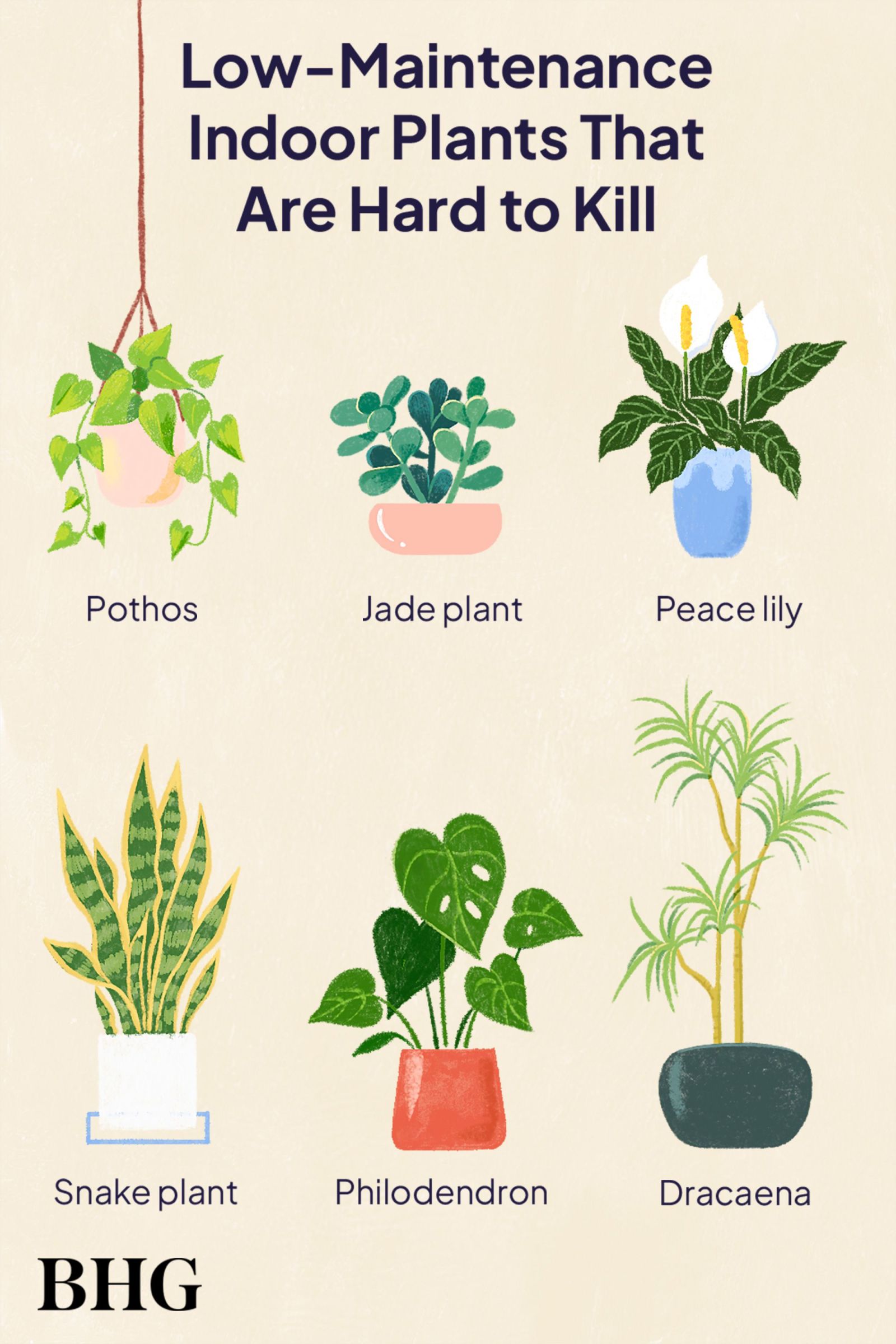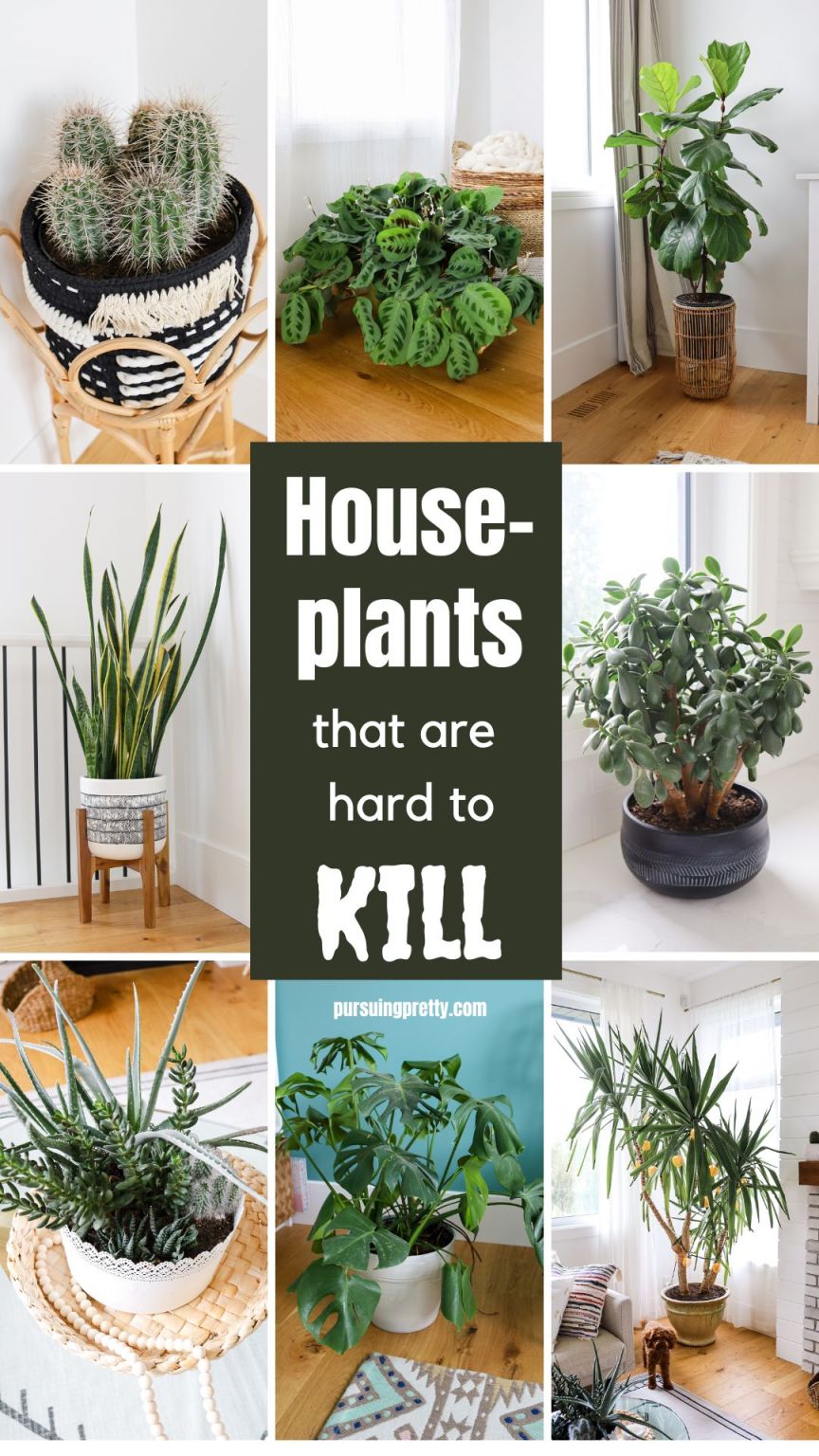Unkillable House Plants: The Perfect Greenery For Those With A Not-So-Green Thumb

House Plants That Are Hard to Kill: A Guide to Green Thumb Success
What do you mean by house plants that are hard to kill?
When it comes to indoor gardening, not everyone possesses a green thumb. Some people struggle to keep plants alive due to various factors such as lack of sunlight, overwatering, or forgetting to water them altogether. However, there are certain house plants that are known for their resilience and ability to thrive even in less-than-ideal conditions. These hard-to-kill plants are perfect for beginners or those who have had unfortunate experiences with keeping plants alive in the past.
How can you ensure the survival of house plants that are hard to kill?
To ensure the survival of house plants that are hard to kill, there are a few key factors to consider. First and foremost, it’s essential to understand the specific needs of each plant, such as light requirements, watering frequency, and temperature preferences. Providing the right amount of sunlight, water, and temperature can greatly increase their chances of thriving.

Another crucial aspect is choosing the right soil and pot. Well-draining soil is essential to prevent overwatering, which can lead to root rot. Additionally, selecting a pot with drainage holes allows excess water to escape, preventing waterlogged roots.
Regular maintenance is also vital to keep these hardy plants healthy. This includes removing dead or yellowing leaves, checking for pests, and occasionally fertilizing them to provide essential nutrients.
What is known about house plants that are hard to kill?

House plants that are hard to kill have gained popularity due to their ability to survive harsh conditions and neglect. These plants are often characterized by their low maintenance requirements and adaptability to different environments. They have the potential to thrive even in homes with less natural light or irregular watering schedules.
Several studies have shown that having house plants can also provide numerous benefits to our well-being. Plants can improve air quality by reducing levels of carbon dioxide and certain pollutants. They can also increase humidity, reduce stress, and improve focus and productivity.
Solution: House Plants That are Hard to Kill
If you’re ready to bring some greenery into your home but worry about your ability to keep plants alive, fear not! There are several house plants that are notoriously hard to kill, making them perfect for beginners or those with busy schedules.
1. Snake Plant (Sansevieria): This popular plant is known for its resilience and ability to survive in low light conditions. It requires minimal watering and can go for extended periods without attention.
2. Pothos (Epipremnum aureum): Pothos is a vine-like plant that is incredibly forgiving and can thrive in various light conditions. It can be grown in soil or water, making it a versatile choice for any home.
3. ZZ Plant (Zamioculcas zamiifolia): The ZZ plant is practically indestructible, making it an excellent option for those who struggle to keep plants alive. It can tolerate low light and irregular watering, making it perfect for forgetful plant owners.
4. Spider Plant (Chlorophytum comosum): Spider plants are known for their air-purifying properties and adaptability. They thrive in bright, indirect light and can tolerate infrequent watering.
5. Dracaena: This diverse group of plants comes in various shapes and sizes, all of which are relatively easy to care for. They prefer bright, indirect light and require infrequent watering.
These are just a few examples of house plants that are hard to kill. By choosing these resilient plants, you can enjoy the benefits of indoor gardening without the fear of constantly watching your plants wither away.
Conclusion
House plants that are hard to kill provide an excellent opportunity for even the most inexperienced gardeners to enjoy the beauty and benefits of indoor plants. With the right care and attention, these resilient plants can thrive in various light and watering conditions, making them perfect for busy individuals or those with limited gardening experience. So go ahead, bring some green into your home and enjoy the benefits of a greener living space!
FAQs (Frequently Asked Questions)
1. Can I still kill these hard-to-kill plants?
While these plants are known for their resilience, it is still possible to harm or kill them if you completely neglect their needs. However, they are much more forgiving and require less maintenance compared to other plants.
2. Are there any specific tips for watering these plants?
Most hard-to-kill plants prefer to be slightly underwatered rather than overwatered. It’s important to allow the top inch or two of soil to dry out between waterings to prevent root rot. Consider using a moisture meter or sticking your finger into the soil to determine when it’s time to water.
3. Do these plants require any special fertilizers?
Hard-to-kill plants generally don’t require frequent fertilization. However, you can use a balanced, water-soluble houseplant fertilizer diluted to half strength during the growing season to provide a boost of nutrients.
4. Can I propagate these plants to create more?
Yes, many of these hard-to-kill plants can be easily propagated. You can propagate them through stem or leaf cuttings, allowing you to expand your plant collection or share them with friends and family.
5. Can I keep these plants in low-light conditions?
Yes, most hard-to-kill plants can tolerate low-light conditions, although their growth may be slower compared to when they receive more light. It’s important to place them near a window where they can still receive some indirect sunlight.

I am a beginner writer who continues to learn and consistently creates informative articles to express the ideas that I master.